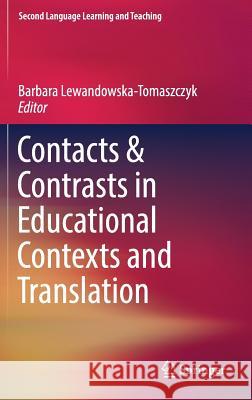Contacts and Contrasts in Educational Contexts and Translation » książka
topmenu
Contacts and Contrasts in Educational Contexts and Translation
ISBN-13: 9783030049775 / Angielski / Twarda / 2019 / 194 str.
Kategorie:
Kategorie BISAC:
Wydawca:
Springer
Seria wydawnicza:
Język:
Angielski
ISBN-13:
9783030049775
Rok wydania:
2019
Wydanie:
2019
Ilość stron:
194
Waga:
0.48 kg
Wymiary:
23.5 x 15.5
Oprawa:
Twarda
Wolumenów:
01
Dodatkowe informacje:
Wydanie ilustrowane











